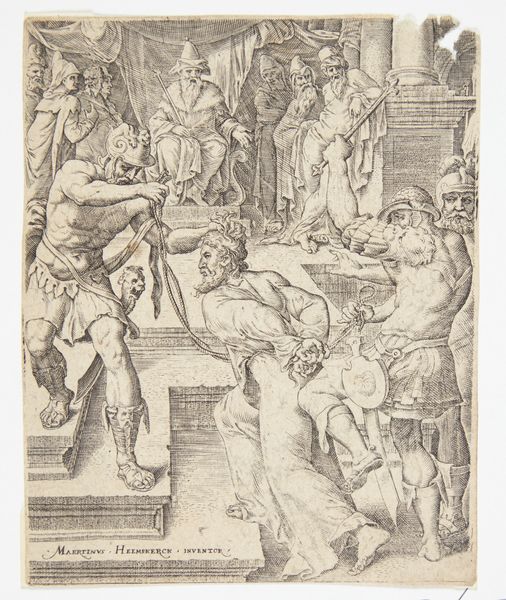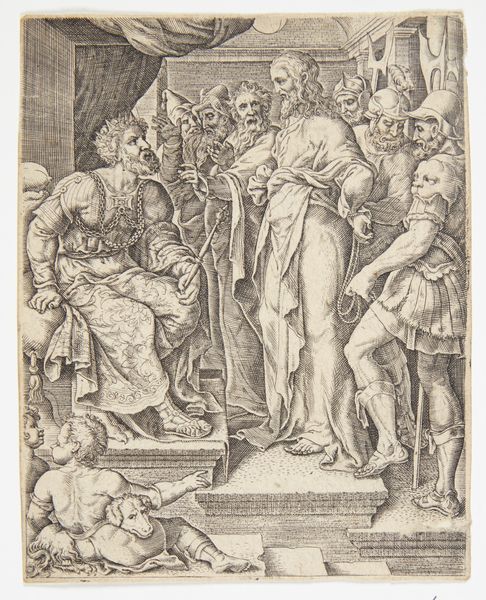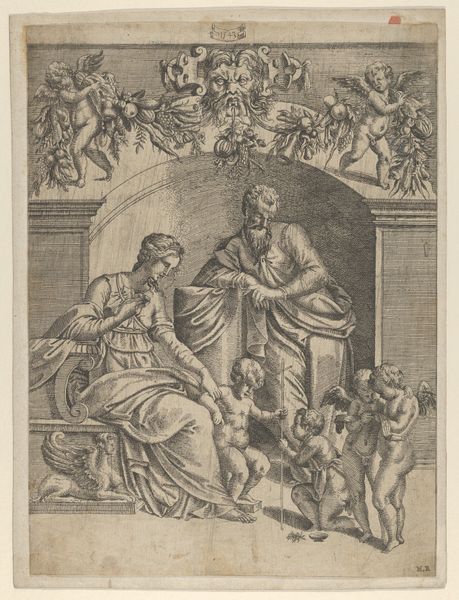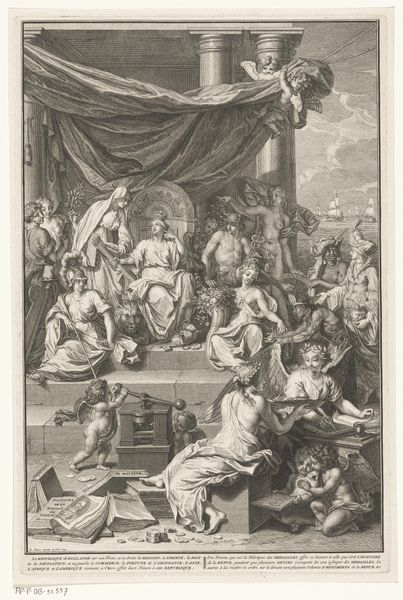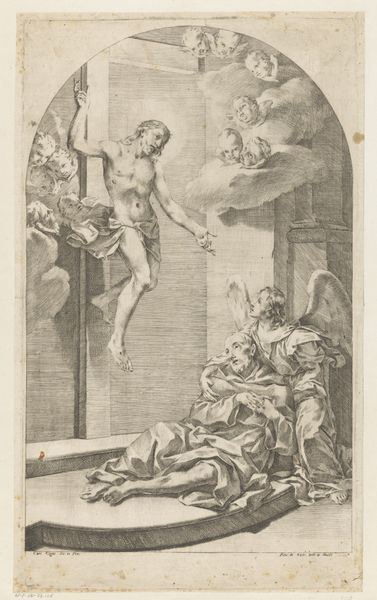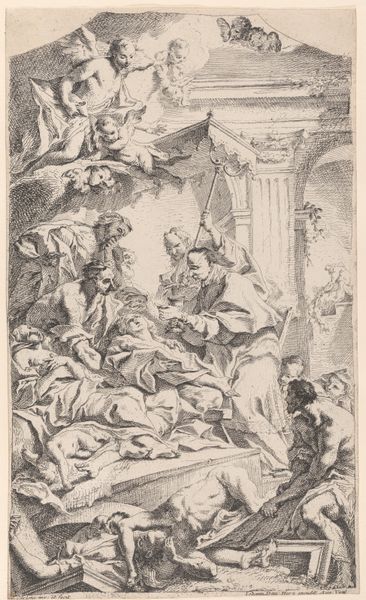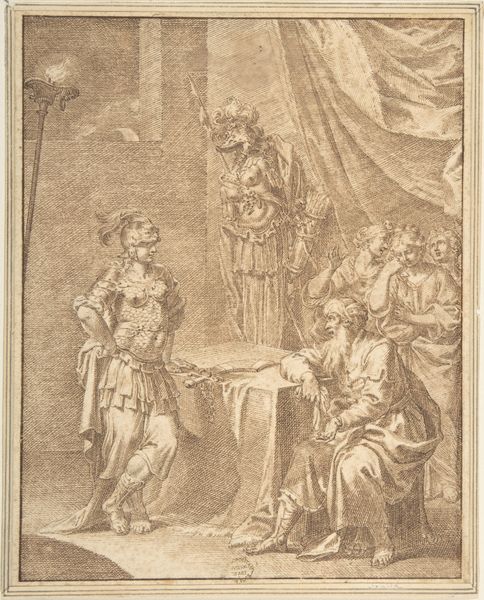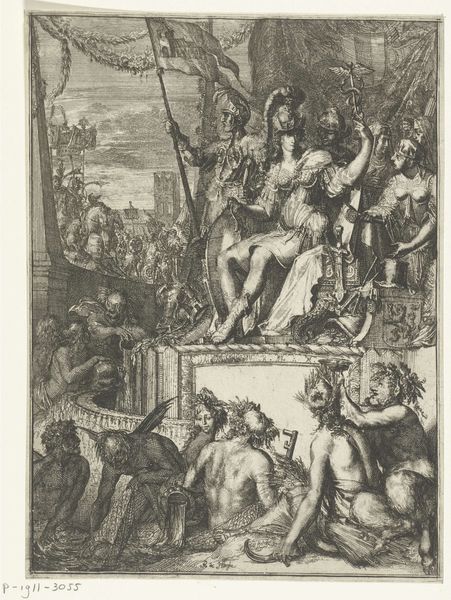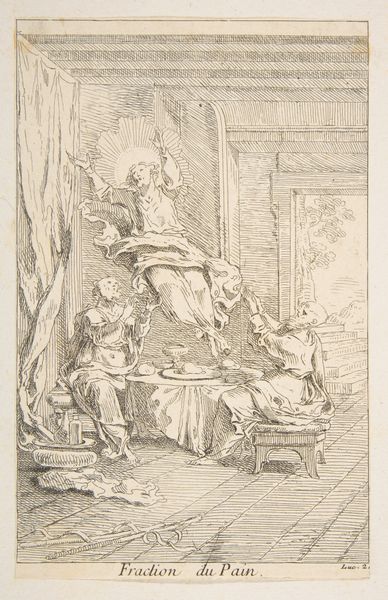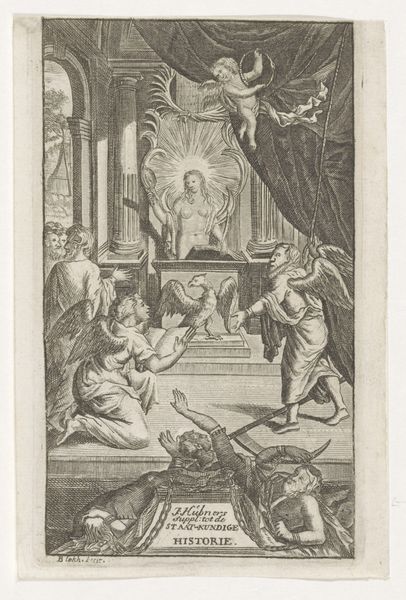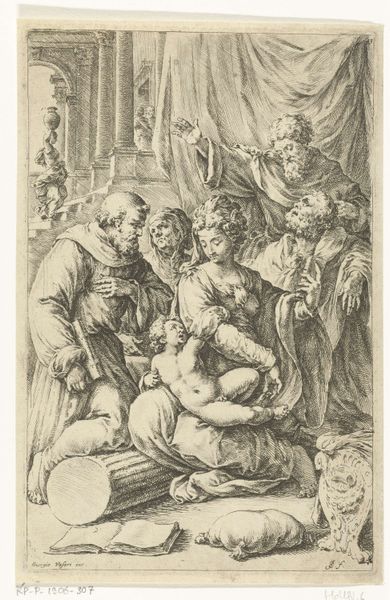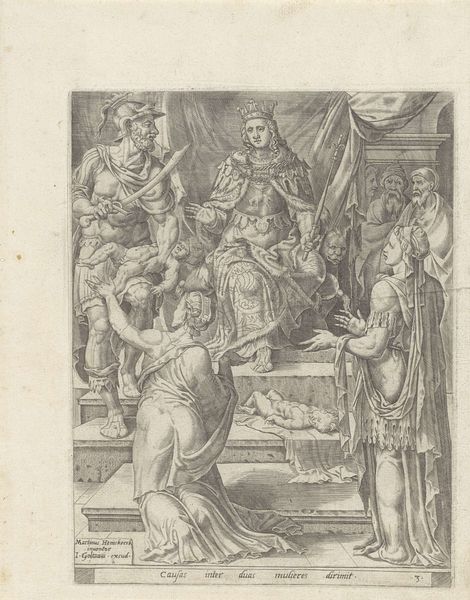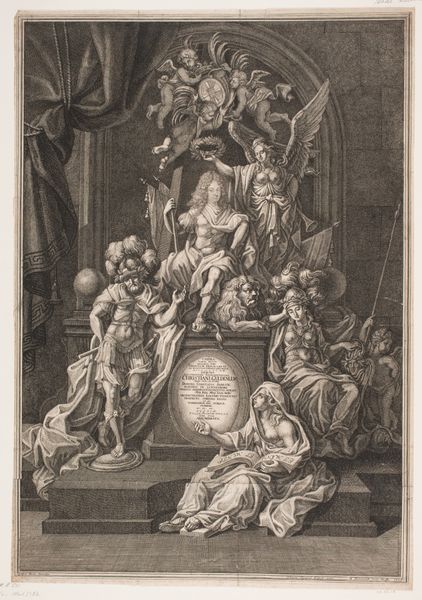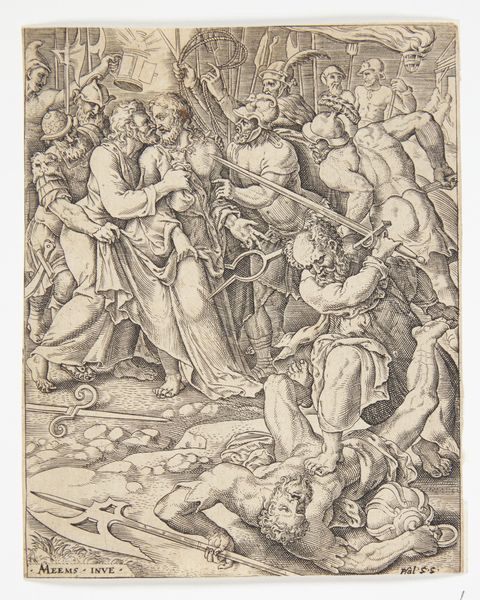
drawing, print, ink
#
drawing
#
ink drawing
#
baroque
# print
#
figuration
#
ink
#
pencil drawing
#
genre-painting
#
history-painting
Dimensions: image: 7 3/4 x 4 13/16 in. (19.7 x 12.3 cm), trimmed to image
Copyright: Public Domain
Editor: This is Claude Gillot's "Ecce Homo," created sometime between 1685 and 1722. It's an ink drawing, almost like a detailed sketch for a larger history painting. It strikes me as very theatrical, with everyone positioned just so. What do you see in this piece, with all its gesturing figures? Curator: The gestures are everything, aren’t they? Consider "Ecce Homo"—"Behold the Man." It's Pilate presenting Christ to the crowd. Gillot’s choice of this scene is deliberate. He invites us to explore how power, judgement, and belief are visually negotiated. Notice how Christ is elevated, almost a statue, radiating light. How do you read the symbolism of the light? Editor: Perhaps it's divine? Like a holy aura? Curator: Exactly. Light often symbolizes divine presence or truth. But look closer at the crowd – some reach out, some recoil, a few seem to plot. It is a study in contrasts. This image doesn't simply depict a biblical scene; it captures a moment of profound social and psychological tension, of shared cultural understanding breaking apart. What emotional echoes do you sense? Editor: I feel a sense of unease. Like I'm witnessing a pivotal moment, but I'm unsure what side to take. It's fascinating how the drawing evokes that internal conflict. Curator: Gillot understood the power of visual cues to trigger those very human responses. Art becomes a mirror reflecting not just the biblical past, but our own potential for compassion, judgment, and collective hysteria. Editor: I hadn't thought about it in terms of collective psychology. Thanks for pointing out all those layers. Curator: My pleasure. It’s these intricate visual threads that give artworks their lasting cultural resonance.
Comments
No comments
Be the first to comment and join the conversation on the ultimate creative platform.
